... newer stories
Monday, 19. February 2007
New York, New York
Leaving for the city that never sleeps... in the footsteps of Woody Allen...
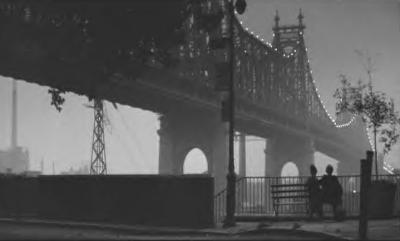

ieva jusionyte, 07:12h
... link (1 Kommentar) ... comment
Thursday, 15. February 2007
Guinea on the verge of civil war
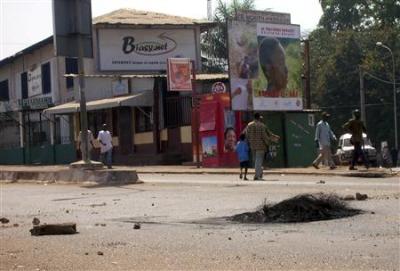
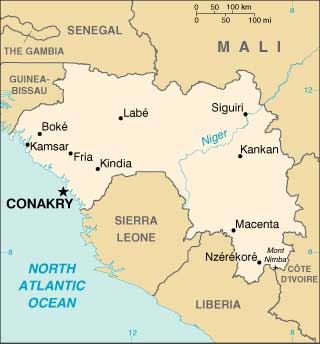
International Crisis Group
Africa Report N°121
14 February 2007
EXECUTIVE SUMMARY
The 12 February 2007 declaration of siege and establishment of a permanent curfew and martial law by President Lansana Conté after three days of renewed violence has brought Guinea to the verge of disaster. Towns throughout the country rallied to the general strike launched on 10 January, turning it into an unprecedented popular protest against the Conté regime. The repression of the demonstrations – over 100 dead in total since January – and the nomination of Eugène Camara, a close Conté associate – as prime minister have shown the regime will do anything to ensure its survival. The international community, which has been largely quiet and absent, needs to react urgently to help produce real change if chaos that could well spread beyond Guinea’s borders is to be prevented.
Weakened by illness, Conté clings to his privileges, showing more interest in his extensive agricultural estates than the fate of the country. Receiving conflicting advice from sycophants obsessed by presidential succession and safeguarding their own material interests, he has responded to the rebellious trade unions with a mixture of carelessness, clumsiness and violence. His consent on 27 January to delegate powers to a prime minister who would be head of government and the decree he issued four days later setting out the powers of that office do not mean he will actually withdraw and that the system of rule Guineans have rejected will end soon. Nor do they remove the question of responsibility for the January and February slaughter of unarmed demonstrators.
The choice of Camara on 9 February was a tragic mistake that was received in the country as a provocation. It was promptly followed first by riots, and then by renewed violent repression. Red-berets of the presidential guard and anti-riot police fired live rounds at people but prevented neither looting nor the systematic destruction of state symbols, including property belonging to members of the government, the presidential entourage and others associated with Conté’s regime.
Guinea now faces two possible scenarios. There is still a chance, though a diminishing one, for a negotiated solution involving key Guinean, regional and wider international actors. Alternatively, if the Conté regime continues to rely on military repression, it could rapidly bring Guinea to a dramatic spiral of violence: full popular insurgency, with increasing chaos that is likely to stimulate a bloody, military take-over, leading in turn to a possible civil war comparable to those that have torn apart its neighbours in the past decade with uncontrollable consequences.
If it comes to that, the troubles are unlikely to stop at the city limits of Conakry or even the country’s frontiers. Chaos in Guinea’s Forest Region, bordering Liberia, Sierra Leone and Cote d'Ivoire, could well destabilise one or more of those frail countries. Likewise, politically unstable Guinea-Bissau could suffer if its president, Joao Bernardo Vieira, seeks to support his long-time friend, Conté.
Western governments as well as multinational firms that benefit from the country’s natural resources value political quiet but they would be making a serious mistake if this led them to support, even by passivity, an effort to retain the Conté system (with or without its creator). Guinean actors and the international community urgently need to cooperate to implement an action plan that brings about change and prevents an escalation of violence.
More: http://www.crisisgroup.org/home/index.cfm?id=4661&l=1
(Photo: REUTERS/Saliou Samb)
ieva jusionyte, 14:30h
... link (2 Kommentare) ... comment
Wednesday, 14. February 2007
Snow storm in New England
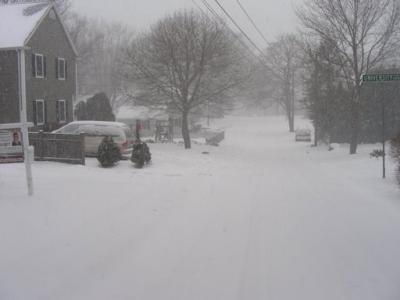
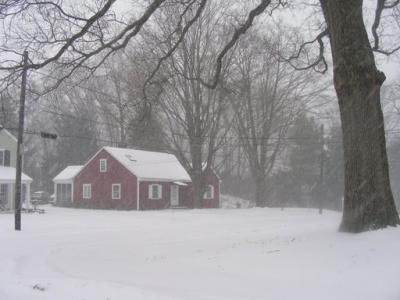
(Thanx to Tathagata for the pictures)
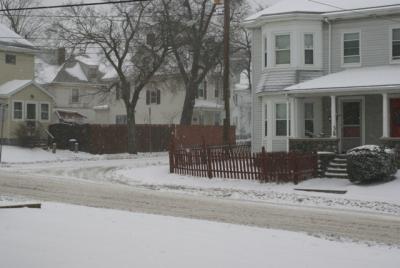
Brandeis News Front Page:
Brandeis afternoon and evening classes are cancelled, as of 3:30 p.m. today, due to the storm. All
offices will close at 3:30 p.m. as well. Employees of Facilities Services, Public Safety, and
laboratories, where it is crucial to maintain research activities, and other offices providing esential
services, should follow the specific instructions of their respective departments.
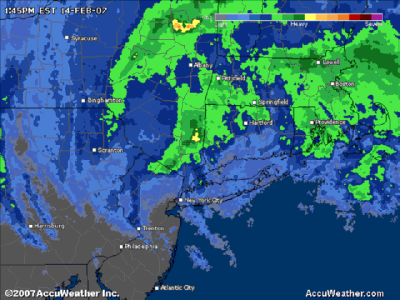
And another storm of something between snow, rain and ice cubes is scheduled for Friday.
ieva jusionyte, 15:59h
... link (0 Kommentare) ... comment
Tuesday, 13. February 2007
How to survive in Baghdad?
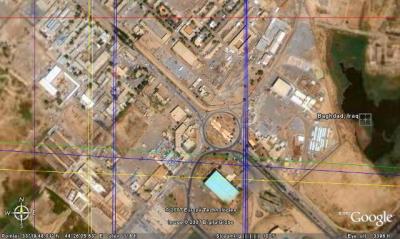
In order to survive sectarian violence in Baghdad, people are using the latest technology - internet to view Google Earth images of the area, satellite television and mobile phones to share them. This helps in knowing which routes are safe to take, if one wants to avoid getting killed or kidnapped, and how to escape from dangerous neighborhoods. This early morning from my small room in Boston I was able to fly over the was-ridden city to see for myself the busy streets from deadly quiet areas.
A full article from BBC News:
http://news.bbc.co.uk/2/hi/middle_east/6357129.stm
But who can explain me how they benefit from using a year or two old satellite pictures for everyday coordination?
ieva jusionyte, 09:00h
... link (0 Kommentare) ... comment
Wednesday, 7. February 2007
border violence
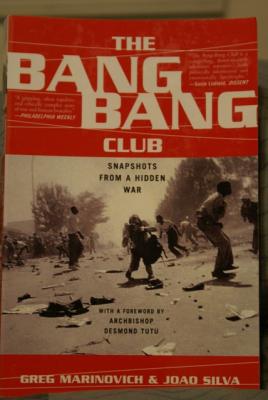
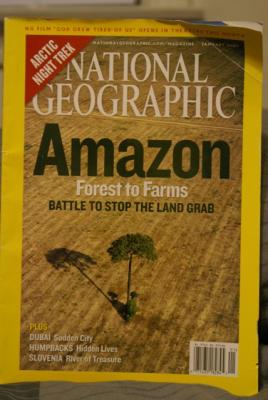
“In the Borderlands
you are the battleground
where enemies are kin to each other;
you are at home, a stranger,
the border disputes have been settled
the volley of shots have shattered the truce
you are wounded, lost in action
dead, fighting back; […]
To survive the Borderlands
you must live sin fronteras
be a crossroads."
G. Anzaldua, “Borderlands. La Frontera”
Borders have been of interest to me for some time now, maybe with an intention of going back home and settling down in Taurage to observe how river Nemunas performs its border functions between Russia and Lithuania, now in the European Union. But before that I have some more borders to explore... Peru-Ecuador and the triangle between Argentina, Paraguay and Brazil. It is tautological to say that borders are not natural, they are political constructs and, as such, are subject to changes. But there are people out there, in borderlands, for whom borders do not exist. They are transgressors by birth, like some Southwestern tribes or Mexican migrants on the U.S.-Mexico border. On the other hand, borders are very real - the fence surrounding remaining Palestinian territories or the proposed wall in Texas. How are they experienced? A question worthy of an anthropologist. As violence, would be my premature answer today. This violence can be institutional - those moving across borders are classified as "illegals", "criminals", "transgressors". But this violence can also be physical, when they encounter border patrols, militiamen or unwelcoming citizens of another state. Migrants can be killed or mutilated. Violence is also physical in a milder sense at border control, which is easily proven in any U.S. airport. It is, however, worst when borders are spaces where politically motivated military conflict between states is enacted upon individual bodies. However, apart from borders between warring states, the most bloody ones are borders that are rich of natural resources, be it oil, diamonds or gold. Many South American and African borderlands are sites of violence that are little explored compared to the U.S.-Mexico border.
At the moment I am writing a research proposal for the Southern Cone borderlands, the "triangle" border area of Argentina-Brazil-Paraguay, described as a lawless zone for drug and human traffickers, smugglers, terrorists. State officials are benefiting from these porous borders while the populations living on both sides of the so-called "Friendship Bridge" or those displaced by the huge hydroelectric development projects on Parana river - Itaipu and Yacyreta dams - are driven into networks of crime by extreme poverty.
However, how does one go and study the border? It is more than obvious that I could not get the permission from all three governments to sneak around for a year, investigating these structures of violence. I would be accused of spying. And even if not, in case I discover something useful for my research, I could get into real trouble. It is organized crime in this area that keeps people paralyzed. Police officers are involved in death squads. Hundreds of contracted killings are facilitated by the free movement of hired murderers. Witnesses are too scared to appear in court and those who do often (!) get killed. And yet some do work there - the journalists. Most of them are local and do not get fortunes for working under conditions that equal war reporting. They risk their lives by exposing crimes committed on the border. Actually, the situation is as bad as this: one mayor caught in crime said that it is cheaper to order a journalist to be killed than to pay the price demanded for withholding publication of a report.
Therefore, now I am thinking of choosing journalists working on the border as the unit of analysis. Border violence manifests itself pretty harshly on them. And by being with them I would at least risk less to be involved in actual investigation of crimes, that is, be one level further from that danger, which, however, does not disappear. Especially for one who is dedicated to be an ENGAGED OBSERVER and follow the principles of activist research, therefore, this project would unite the different interests that I have - anthropology, journalism and politics. In order to understand how power structures suffering one has to engage theory with politics in ways that are relevant to the people we study. In other words, ethnography needs political teeth as well as theoretical depth and self-reflection.
By the way, there is an article in "NY Times" today about how "illegal" border crossing has become a bizzare tourist attraction on Mexico-U.S. frontier. "Run! Hide! The Illegal Border Crossing Experience":
http://travel.nytimes.com/2007/02/04/travel/04HeadsUp.html?8dpc
ieva jusionyte, 20:12h
... link (0 Kommentare) ... comment
... older stories